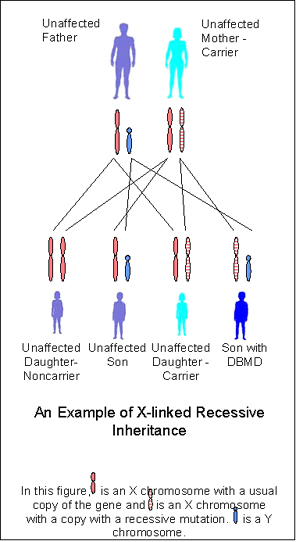| Single Gene
Disorders and Disability (SGDD) |
What Are Genes?
Genes contain the instructions that tell the cells of people’s bodies how to
grow and work. For example, the instructions in genes control what color a
person’s eyes are and how tall a person will be. Each person gets half of
his or her genes from each parent, and that is why a person tends to look
like his or her parent.
Genes are stored in a chemical called
deoxyribonucleic acid (DNA). DNA is a chemical chain made up of “bases”.
There are four bases: A, C, T, and G. The specific order, or sequence, of
these bases determines the exact information carried in each gene, like the
way that a specific pattern of letters makes up the words in a sentence.
For more details, click here.
What Are Mutations?
A mutation is any change in a gene that makes it different from the usual
copy (the copy that most people have). If the change causes a difference in
the way that the gene works, the person with the mutation could have a
particular condition (such as muscular dystrophy) that runs in the family.
Different changes run in families in different ways.
For more details on mutations, click here.
X-Linked Conditions
X-linked conditions usually affect
only males. A mutation causing a condition can be passed in the family
through female carriers who do not have the condition. However, each son of
a female carrier has a 50% chance of inheriting the mutation and, therefore,
of having the condition.
“X-linked” genes are genes that are
found on the X chromosome. “Recessive” means that a person can have the
condition only if he or she does not have at least one usual copy of the
gene.
A female has two X chromosomes and,
therefore, two copies of each X-linked gene. A woman who has one usual copy
and one copy with a recessive mutation is called a carrier. She does not
have the condition, but can pass the copy with the recessive mutation on to
her children.
A male has only one copy of the X
chromosome, which he has gotten from his mother. If the copy that he gets is
the copy with the recessive mutation, he will have the condition because he
does not have a usual copy of the gene. If he gets his mother’s X chromosome
that has the usual copy of the gene, he will not have the condition.
Therefore, a son of a carrier mother has a 50% chance of having the
condition. A male who has the condition passes his X chromosome to each of
his daughters, so each daughter will be a carrier. A male with the condition
passes his Y chromosome to each of his sons, so none of his sons will have
the condition or be carriers (unless the mother is also a carrier).

[Return to Top]
Date: September 1, 2006
Content source: National Center on Birth Defects and Developmental
Disabilities
|